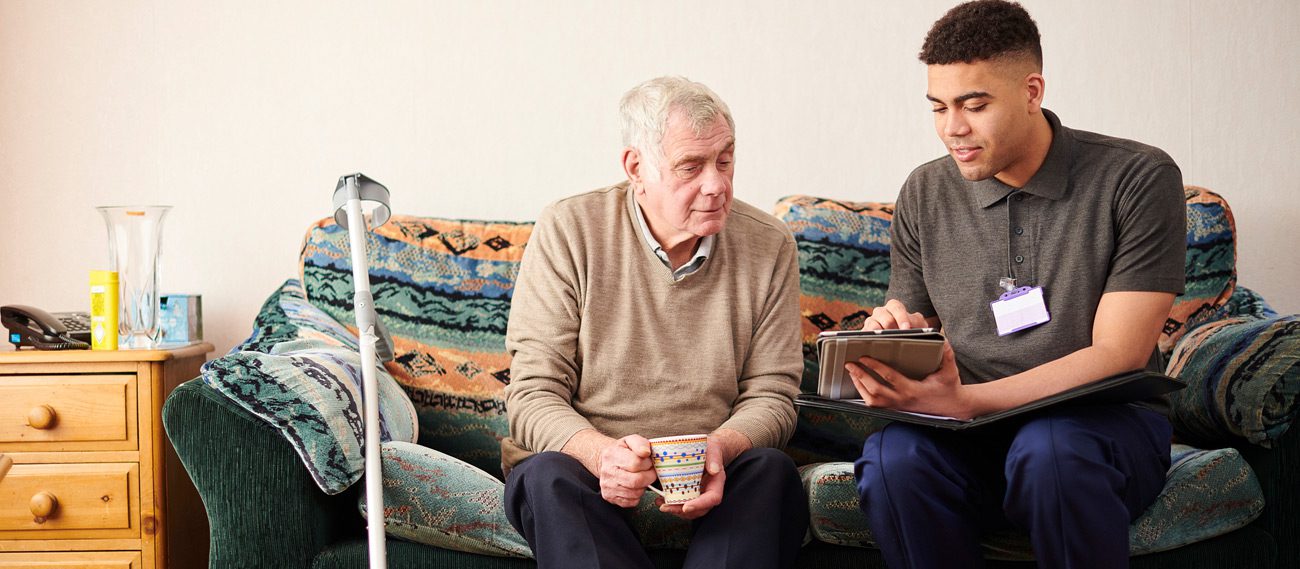

Comforting Care Services has a team of licensed medical social workers trained to help patients and their families navigate community resources and to offer professional support.
Assessment
A medical social worker will assess the patient’s social, emotional, medical, environmental, and financial needs. Challenges such as potentially abusive or neglectful situations, lack of a social support system, and safety risks will be assessed. The results will be shared with the patient’s care team to inform the overall treatment plan. This is critical to ensuring quality of care across all levels.
Advanced Care Planning
Medical social workers will document the wishes of hospice patients regarding:
- Advanced directives
- Do Not Resuscitate (DNR) orders
- Physician Orders for Life Sustaining Treatment (POLST)
- Other legal matters to support end-of-life wishes
- Funeral planning

Community Resource Planning
Medical social workers will identify and recommend community programs and resources that could support the hospice patient. They will communicate with family members and caregivers to ensure the hospice patient receives the care they need.
Advanced Directives
Advanced directives ensure the patient receives the care they desire when they’re no longer able to communicate their wishes in a clear or rational manner. Advanced directives may include:
- Living will. A living will outlines the treatment desires of the patient when they’re unable to make their own medical decisions. The will outlines what actions not to take and removes the decision-making burden from family members.
- Health care power of attorney. This is a legal document that gives an individual the right to make health care decisions on behalf of the patient. This right is typically given to a spouse, parent, adult child, or sibling. A health care power of attorney covers the unpredictable aspects of health care decisions that aren’t covered in a living will. The entire decision making process is entrusted to another person, not the patient.
Crisis Intervention
This aspect of medical social services covers what the health care team should do in times of crisis, such as:
- Extreme discomfort
- Worsening symptoms, such as:
- Bleeding
- Delirium or confusion
- Difficulty breathing
- Difficulty swallowing foods and/or liquids
- Incontinence
- Difficulty using the bathroom
- Pressure ulcers
Counseling
Hospice patients, their family members, and caregivers need assistance coping with medical illness. Medical social workers provide psychological counseling that covers coping strategies and techniques, such as:
- Journaling on a daily basis
- Communicating with employers and supervisors about your progress
- Stepping away from daily responsibilities to grieve
- Reframing the daily routine
- Joining a supportive community
Medical social workers may offer the following tips:
- Be kind to yourself.
- Take the time to rest.
- Do what brings you joy and comfort, not what others think or say you should do.
- Accept support.
- Ask for help when you need it.
- Understand that celebrating the holidays will be difficult this year.
- Set realistic goals.
Education
The family members and caregivers of hospice patients need to be educated throughout the process. It can be difficult to navigate the complex health care system while expecting the death of a loved one. Medical social workers will guide family members, patients, and caregivers every step of the way.
